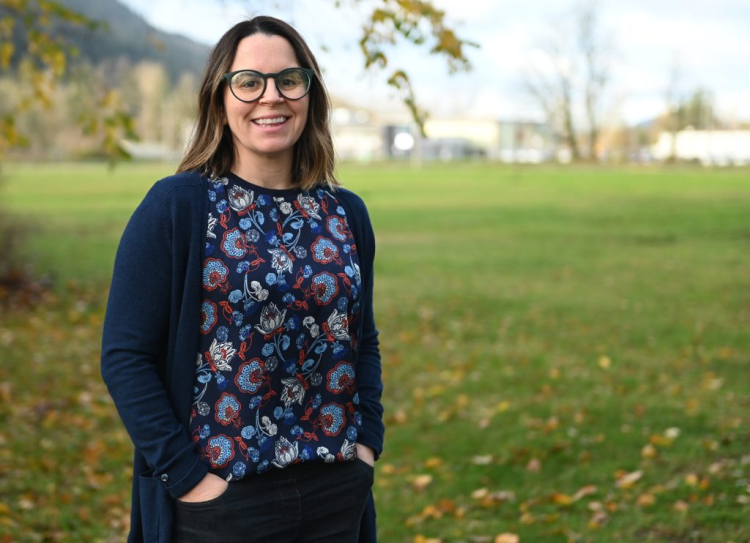Luisa Giles always feels unsettled when wildfire smoke starts drifting into the Fraser Valley. She knows that the sun will be turning red, the blue sky will turn grey and soon she'll be spending a lot more time indoors.

"When I'm stuck inside my motivation for anything, especially physical activity plummets," Luisa says. "And during these times, seeing news reports about wildfire smoke also makes me feel anxious."
A recent study Luisa led confirmed she's not alone in these feelings. The assistant professor of Kinesiology provided a detailed questionnaire to participants, assessing physical activity and mental well-being during and after periods of wildfire smoke.
Results showed that on smoky days, participants spent more time commuting by vehicle, less time commuting by bike, and did less physical activity outdoors. Overall, moderate and vigorous physical activity (ie, jogging/cycling/brisk walking) decreased by about 20 minutes.
What caught Luisa's eye were the symptoms of mental well-being. Did they find it hard to wind down? Did they feel more agitated? Did they overreact to stressful situations? Were they worried about situations in which they might panic? Participants assigned a number between zero and three to 21 questions of this nature. When the results were tabulated, they revealed that on smoky days there was an increase in symptoms of stress, anxiety, and depression.
"Those who experienced greater decline in vigorous physical activity experienced greater decline in symptoms of mental well-being," Luisa explains. "Why it's important for us to know that is because it suggests we need to find ways to support people so they can remain active during times of wildfire smoke, as this could help both physical health and mental well-being."
Though more research is needed, Luisa has thoughts on what that could look like.
"Could there be free or low-cost access to indoor clean-air spaces that allow people to keep moving when it's smoky out?" she asks. "For example, in Chilliwack, the Cheam Rec Centre has indoor family play on Sundays. Could that be offered more frequently so parents can get their kids inside to run around and be active?
"Can gyms or local authorities offer free or low-cost access to clean-air exercise spaces, or offer N95 masks?"
Having these things available would be a great start, but making people aware of them could be a challenge. Over 60 per cent of participants in Luisa's study used air quality advisories, such as those issued by the provincial government, to guide their physical activity choices. Those who did so were more than twice as likely to move their physical activity indoors, but even then, Luisa says the activity was lessened.
"While advisories recommend doing this, this, and this, I wonder if they could promote resources for physical activity and mental well-being," she muses. "When you're in the thick of it, when you and your kids are stuck inside and you're not feeling great, that's not the time to be searching for resources.
"That's the time to have the resources provided to you."
Wildfire smoke will continue to be an issue due to climate change, and Luisa hopes her study sparks conversation about solutions.
"It's super vital because climate change is happening, and wildfires are likely to become more frequent and intense," she says. "We know the benefits of physical activity, and we now know a decline in physical activity impacts mental well-being. We need to support people and telling them not to exercise may not be the best way to do it.
"Now is the time to be coming up with solutions."
The study was co-authored by UFV colleagues Dr. Cynthia Thomson, Dr. Iris Lesser, and Dr. Jason Brandenburg.













